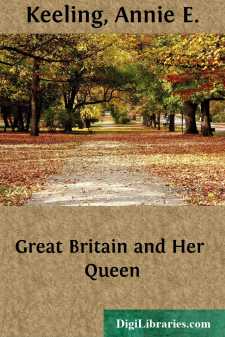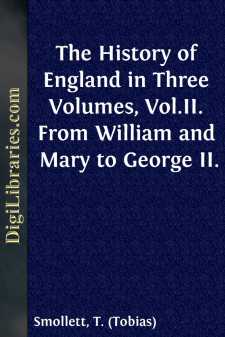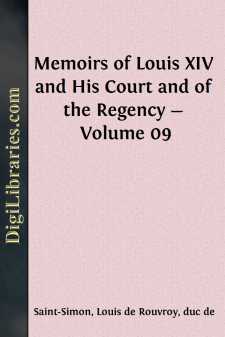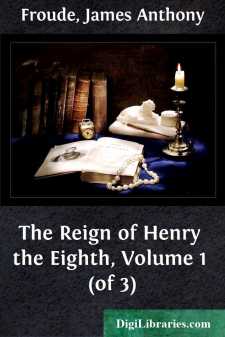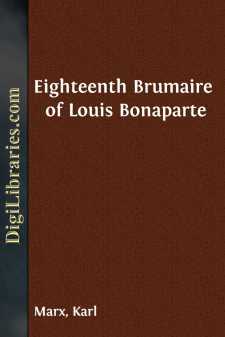History
- Africa 30
- Americas (North Central South West Indies) 50
- Ancient 68
- Asia 58
- Australia & New Zealand 8
- Canada 41
- Caribbean & West Indies 1
- Civilization 20
- Eastern Europe 12
- Europe
- Expeditions & Discoveries 60
- General 77
- Historical Geography 1
- Jewish 9
- Latin America 3
- Medieval 8
- Middle East 13
- Military 248
- Revolutionary 8
- Study & Teaching 5
- United States 353
- Western Europe 56
- World 13
Europe Books
Sort by:
by:
Thomas Carlyle
CHAPTER I. HARALD HAARFAGR. Till about the Year of Grace 860 there were no kings in Norway, nothing but numerous jarls,—essentially kinglets, each presiding over a kind of republican or parliamentary little territory; generally striving each to be on some terms of human neighborhood with those about him, but,—in spite of "Fylke Things" (Folk Things, little parish parliaments), and small...
more...
(M1) The proclamation announcing James VI of Scotland to be "by law, by lineal succession and undoubted right," heir to the throne of England, now that Elizabeth was dead, illustrates again the ancient right of the citizens of London to a voice in electing a successor to the crown. The document not only acknowledges the assistance received by the lords of the realm from the lord mayor, aldermen...
more...
by:
Annie E. Keeling
CHAPTER I THE GIRL-QUEEN AND HER KINGDOM Rather more than one mortal lifetime, as we average life in these later days, has elapsed since that June morning of 1837, when Victoria of England, then a fair young princess of eighteen, was roused from her tranquil sleep in the old palace at Kensington, and bidden to rise and meet the Primate, and his dignified associates the Lord Chamberlain and the royal...
more...
by:
Grace Wharton
HORACE WALPOLE.The Commoners of England.—Horace's Regret for the Death of his Mother.— 'Little Horace' in Arlington Street.—Introduced to George I.— Characteristic Anecdote of George I.—Walpole's Education.—Schoolboy Days.—Boyish Friendships.—Companionship of Gray.—A Dreary Doom.— Walpole's Description of Youthful Delights.—Anecdote of Pope and Frederic of...
more...
ACCOUNT OF THE NEW MINISTRY. William began his reign with a proclamation, for confirming all protestants in the offices which they enjoyed on the first day of December; then he chose the members of his council, who were generally staunch to his interest, except the archbishop of Canterbury and the earl of Nottingham, and these were admitted in complaisance to the church-party, which it was not thought...
more...
Let me here relate an incident which should have found a place earlier, but which has been omitted in order that what has gone before might be uninterrupted. On the 16th of the previous July the King made a journey to Fontainebleau, where he remained until the 14th of September. I should suppress the bagatelle which happened on the occasion of this journey, if it did not serve more and more to...
more...
INTRODUCTION James Anthony Froude was born at Dartington Rectory, the youngest son of the Archdeacon of Totnes, on April 23, 1818. His father was a clergyman of the old school, as much squire as parson. In the concluding chapter to his History of England, Froude wrote that "for a hundred and forty years after the Revolution of 1688, the Church of England was able to fulfil with moderate success the...
more...
The Afghan Campaigns—1839-42. In 1809 the reigning Ameer of Afghanistan, Shah Soojah-ul-Moolk, was dispossessed of his throne and an exile. Runjeet Singh, the Sikh ruler of Punjaub, plundered and imprisoned him at Lahore, and obtained from him the famous Koh-i-noor, the great diamond which is now among the crown jewels of Great Britain. Eventually Soojah escaped from Lahore and became a pensioner of...
more...
by:
Karl Marx
I Hegel says somewhere that that great historic facts and personages recur twice. He forgot to add: "Once as tragedy, and again as farce." Caussidiere for Danton, Louis Blanc for Robespierre, the "Mountain" of 1848-51 for the "Mountain" of 1793-05, the Nephew for the Uncle. The identical caricature marks also the conditions under which the second edition of the eighteenth...
more...
by:
Charles Morris
HOW ENGLAND BECAME CHRISTIAN. One day, in the far-off sixth century, a youthful deacon of the Roman Church walked into the slave-market of Rome, situated at one extremity of the ancient Forum. Gregory, his name; his origin from an ancient noble family, whose genealogy could be traced back to the days of the early Cæsars. A youth was this of imperial powers of mind, one who, had he lived when Rome was...
more...




